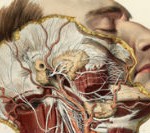June 2015

Nelson Sanjad is a researcher at the Emilio Goeldi Paraense Museum.
By HCS-Manguinhos*
The work of a referee is essential to produce good quality academic communication. That is why História, Ciências, Saúde – Manguinhos wants to acknowledge all the referees who have contributed in 2014 with their reviews, assessments and commentaries to our high quality content.
The importance and relevance of the referee role are the main subject of this exclusive interview with researcher Nelson Sanjad, from the Emilio Goeldi Paraense Museum. André Felipe Cândido da Silva, Marcos Cueto and Roberta Cardoso Cerqueira from the HCS-Manguinhos team spoke with him.
In your opinion, what is needed to produce a good peer review?
There are two essential things, which are not always mentioned in referee manuals: the first is to read the text carefully. By this I mean that the referee should not project his ideas or expectations onto the arguments of the author of the text. Rather, he should seek to understand the author’s arguments to the extent possible, that is, he should assess what he is, effectively, reading, and not what he would prefer to read or what he would have liked the author to have written.
In addition to this impartial, detached, disengaged reading, the reviewer should also be generous. This transforms the evaluation into constructive criticism, into disinterested collaboration. A generous peer review does not necessarily need to be long and detailed. It should, however, be clear and precise, and it should seek to uncover the article’s potential and suggest ways in which it could be improved. Both qualities, impartiality and generosity, should be cultivated and praised in academia. They are not innate, but rather the fruit of good manners, intellectual background, training and self-criticism.
How important is the referee’s role in the process of publishing an academic article? Could you comment on the importance of peer review in the context of the institutional scientific community?
I believe that evaluation by peers is fundamental to scientific communication. The process has been criticized, and studies have shown that it is flawed. Fraud has been reported and some periodicals seek alternatives. But others defend its efficacy, myself included. The fact is that there is still no other method providing editors a guaranteed means of verifying knowledge through the scientific community. Peer review is an important filter, necessary for the corroboration or refutation of ideas—unless we radically change how academic communication takes place, which has, incidentally, been defended by those promoting multimedia platforms and who believe that the Internet and social networks have opened new frontiers in academic communication. However, both traditional and experimental methods depend and will continue to depend on a key element of the process: the editor.
I would say that the effectiveness of the peer evaluation process depends almost entirely on the editor responsible. If the process has proven to be flawed, if frauds are uncovered—as recently occurred in England—the editor should provide an explanation. The BioMed Central case, in which 43 articles were retracted because the peer review process was forged, demonstrates perfectly the complexity and seriousness of the editor’s work. Their responsibility is enormous and requires, in addition to managing the process in an ethical, transparent, and very well documented manner, appreciating how to evaluate a review, dealing with authors and knowing which decision to make both for the author and journal’s sake.
The quality of what is published depends largely on the efficacy of this process. It is the editor who lends credibility to it. The editor’s task therefore requires talent, knowledge related to her role, and complete dedication to it.
Do you think that the work of referees is not recognized as academic work? Why?
I believe that the work of referees is recognized as an important part of the academic communication process by most researchers and professors, to the extent that many perform this role. The fact that a researcher is invited by an editor to review an article is in itself an acknowledgment of the researcher’s credibility. This is how the system works: I review the work of others and others review my work. Isn’t that what academia is all about? Exchanges, communication, and impartial collaboration for the sake of research? Or have we lost this reference and fallen into pragmatic individualism, definitively shifting the Republic of Letters to the field of utopia?
Now, the work of a referee is clearly invisible, by its very nature, because most journals do not reveal the names of referees. Some trade magazines pay their referees, but this—fortunately—is not done in Brazil. And some institutions reward their researchers when they act as referees. There are also other ways for editors to recognize this type of service, such as gifting referees with a subscription to the journal so that they can follow the trajectory of the journal and the result of their own work.
One situation that editors face today is conflicting peer reviews. Do you attribute this to a high degree of subjectivity in article evaluations?
Here I would say: each case is a different one! The reasons for disagreement can be so diverse, from theoretical differences to simple doubts when deciding on whether to click “needs changes” or “reject.” There are also personal conflicts, which often affect reviews. The reasons for conflicting reviews can also lie in poorly written evaluation forms or in poor choices by editors. When individuals without the necessary qualifications are invited to peer review a given article, the final result of the process may be inferior, equivocal or conflicting.
As I already said, in all cases the editor is responsible for avoiding conflicts and resolving them. The best solution is always to assess the evaluation, that is confirm that the referee read the article carefully, determine if their comments and recommendations are relevant, and compare all reviews available in order to forward coherent documents to the author.
Do you believe that expertise in a specific field is essential for a consistent peer review?
Yes, as otherwise the referee will not have access to the article’s “background,” that is the theoretical issue or debate underlying the case study or author’s argument—and which is not always explicit or sufficiently clarified in the text. The review of a non-specialist runs the risk of being too superficial. The referee could address the structure or economy of the text, its use of language, or the relation between the text and images, or various formal aspects. But the evaluation of these aspects does not require peer review and could be done by the journal’s own editors.
For this reason, I think that the aid of referees is much more important in the evaluation of the content of an article, which can only be provided by a specialist. But when I use the term “specialist,” I mean a professional in the same field, not someone who works with the same topic or subject. For example, an article about clinical medicine in the late eighteenth century should be evaluated by a medical historian, preferably someone who studies the same time period. Of course, there are very specific topics or relatively new research areas, which makes the selection of referees difficult. Some indigenous languages, for example, are studied by only one researcher. In such cases, the editor should use common sense and find alternatives that make evaluation possible.
Each case requires a different solution. The management of each editorial process, with its problems and peculiarities, is one of the reasons why the editor’s job is so demanding.
Nelson Sanjad is a researcher at the Emilio Goeldi Paraense Museum.
*Collaborators from the HCS-Manguinhos team: André Felipe Cândido da Silva, Marcos Cueto and Roberta Cardoso Cerqueira.
Read further:
Acknowledgements by HCS-Manguinhos to our 2014 referees
Related articles on HCS-Manguinhos:
Sanjad, Nelson. Natural history and medicine in the work of Adolpho Lutz (1855-1940). Hist. cienc. saude-Manguinhos, Mar 2010, vol.17, no.1.
Sanjad, Nelson. Cholera and environmental medicine in the manuscript “Cholera-morbus” (1832), by Antonio Correa de Lacerda (1777-1852). Hist. cienc. saude-Manguinhos, Dec 2004, vol.11, no.3.
Sanjad, Nelson. Charles Frederick Hartt and the institutionalization of the natural sciences in Brazil. Hist. cienc. saude-Manguinhos, Aug 2004, vol.11, no.2.
Sanjad, Nelson. On ‘the abominable profession of being a vampire’: Emílio Goeldi and Mosquitos in Pará (1905). Hist. cienc. saude-Manguinhos, Apr 2003, vol.10, no.1.
How to cite this post [ISO 690/2010]:
To be impartial and generous: Essentials for a good peer review. [viewed DD MM YYYY]. Available from: http://www.revistahcsm.coc.fiocruz.br/english/to-be-unbiased…od-peer-review/






